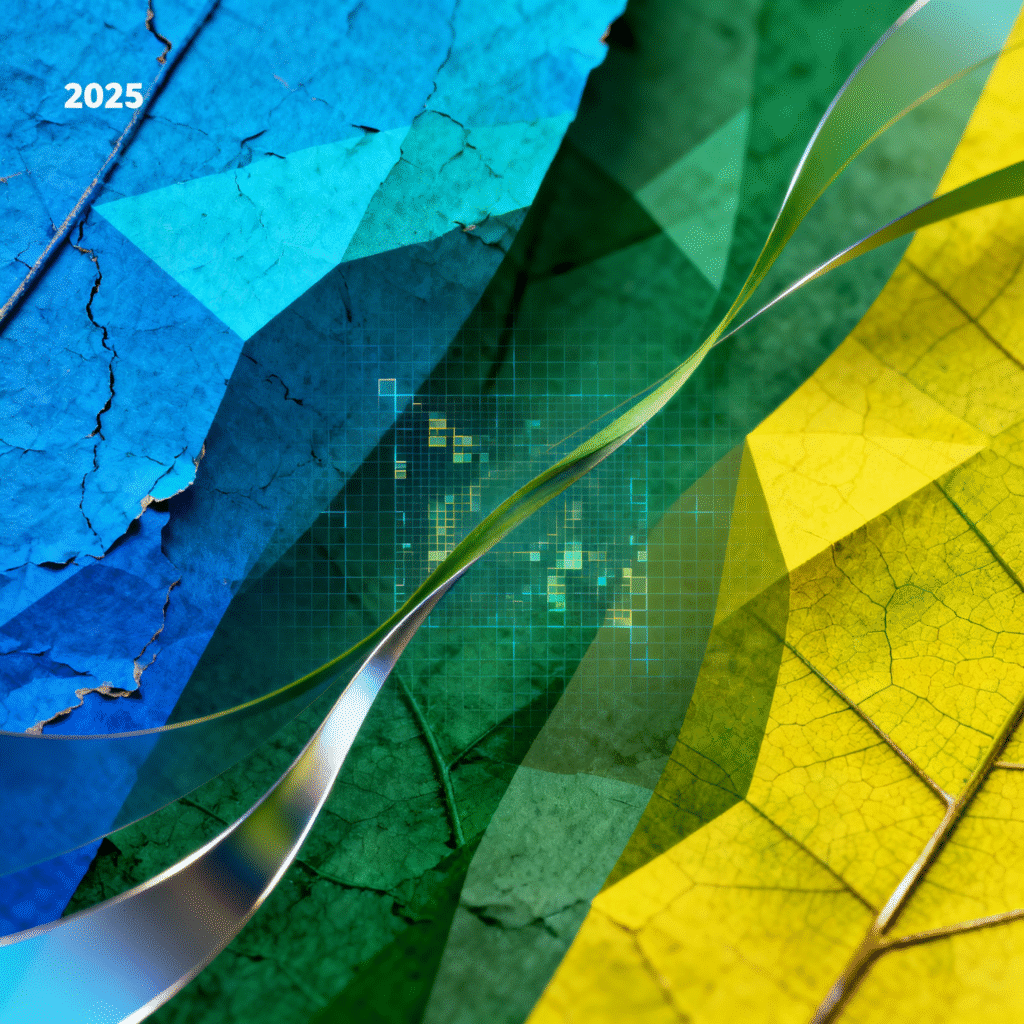
In 2025, graphic design is undergoing a period of profound transformation, with artificial intelligence, sustainability, and emotional aesthetics playing undisputed leading roles. Professionals can take advantage of these trends to innovate and connect with audiences in an authentic way.
Creativity powered by Artificial Intelligence
Tools such as Adobe Firefly 2.0, MidJourney, and Canva Magic Studio have incorporated advanced AI that generates compositions, adapts styles, and automates creative tasks in seconds. This advancement allows designers to expand their creativity and work more efficiently, integrating AI as an ally and talent multiplier.
Sustainable and natural design
Organic textures, recyclable materials, and nature-inspired motifs are becoming increasingly common. The aim is to convey authenticity and environmental awareness, connecting with a generation that is sensitive to ecological impact.
Abstraction and conceptualism
Conceptual and abstract design is booming, using geometric shapes, freehand strokes, and unusual color combinations to provoke emotions and highlight messages. This trend encourages experimentation and emphasizes originality in each piece.
Expressive minimalism
Minimalism does not mean coldness. In 2025, “bold minimalism” is gaining momentum: clean compositions combined with powerful typography and vibrant color palettes. This achieves a balance between simplicity and effective communication.
Retro-futurism and tangible texture
The nostalgia of analog, retro 3D, and “structured scrapbooking” merge, generating pieces that evoke the past while looking toward the future, to create visual proposals full of personality.
Key tools and collaboration
The integration of AI and cloud collaboration is revolutionizing graphic design. Notable examples include Adobe Creative Cloud (with integrated AI), Figma + FigJam AI, Canva and Firefly 2.0 for prompts, and MidJourney for conceptual illustrations. Creation is becoming more accessible and dynamic than ever before.
Humanity and diversity in design
Human connection and visual diversity are gaining ground. Automatic processes are complemented by manual contributions, demonstrating that technology multiplies (but does not replace) the designer’s creative sensibility.
In summary, graphic design in 2025 is characterized by AI-augmented creativity, visual and material sustainability, and hybrid aesthetic experimentation between the manual and the digital. Adopting these trends ensures relevance and differentiation in today’s competitive creative world.
Ideas for you to explore: If you manage content on visual platforms or are looking to revamp your portfolio, try integrating natural textures, AI-generated elements, and bold minimalist compositions. This will align you with the modern pulse of graphic design and strengthen your personal or professional brand for the future.